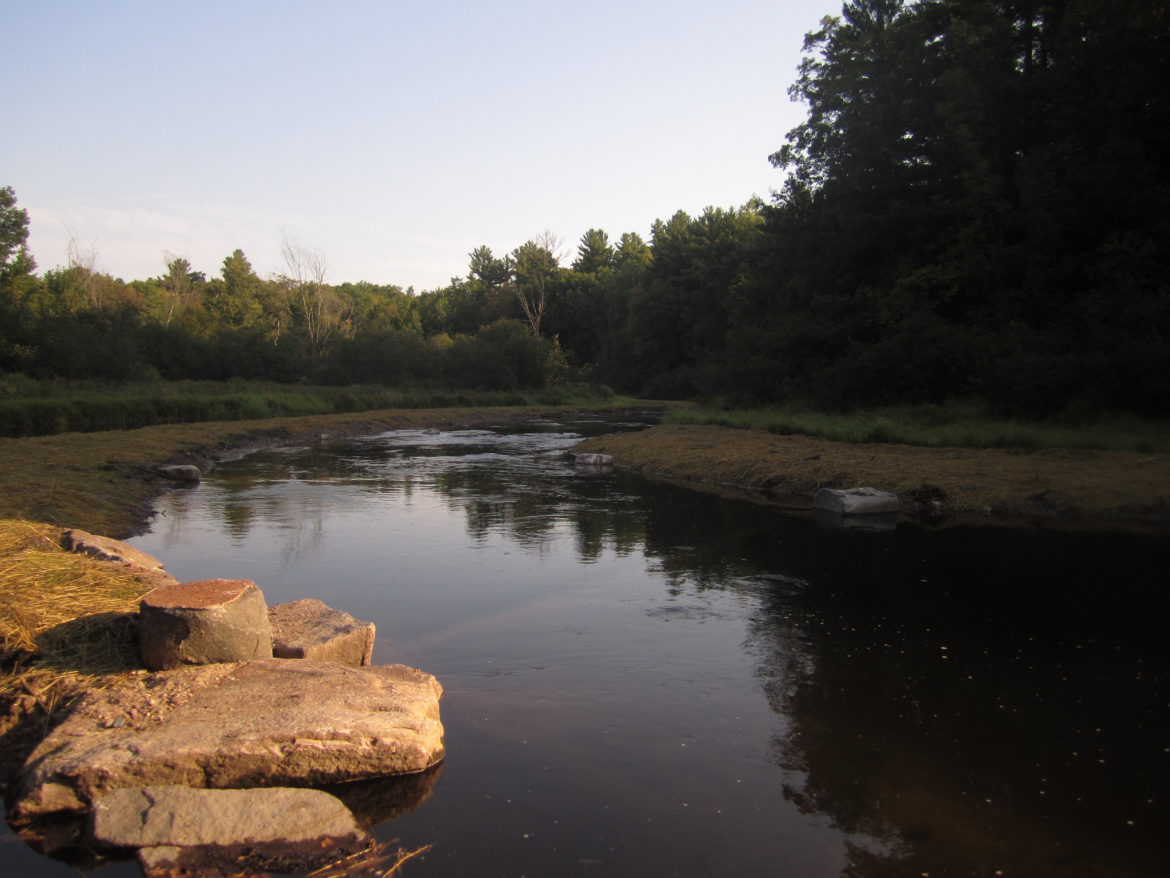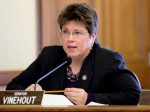How Can We Protect Our Water?
Hire back the DNR scientists and inspectors and let them do their work.

Stream in Wisconsin. Photo by USFWSmidwest / C.C. 2.0
“What can we do to protect our water?” This is a question I am often asked. Many Wisconsin residents are concerned about protecting our precious natural resources, and much of the concern is focused on water quality.
This week we celebrate Earth Day. Forty-eight years ago, Wisconsin’s own Gaylord Nelson first gathered with 20 million Americans in support of environmental issues. Celebrating the earth means being mindful stewards of all its natural resources, including water. Over 70% of the earth’s surface is covered in water. Less than 3% of this water is fresh; most fresh water is tied up in ice. Scientists estimate somewhere between a half and three-quarters percent of all water on earth is liquid fresh water.
In Wisconsin, we are blessed with many lakes, rivers, streams and aquifers. The Public Trust Doctrine contained in Wisconsin’s Constitution designates these waters as belonging to all of us. Our state and federal governments are charged with protecting waters.
At the heart of the state’s water quality program is a permitting and inspection system that allows water discharge into our lakes, streams and rivers. Inspections, reporting and enforcement actions impose the laws.
Two years ago, the Legislative Audit Bureau (LAB) found that 94% of the time the Department of Natural Resources (DNR) failed to take necessary action against industries and municipalities, which violates its own enforcement policies.
CAFOs are required to send in annual reports that include any manure spills and required testing. Auditors found almost 98% of the required reports were not electronically recorded as being received. This lack of oversight meant DNR had no way of knowing or tracking problems. Staff said they were too busy to review reports.
While the former DNR Secretary acknowledged staffing was a problem, she made no promises to correct the situation. The most recent budget eliminated the Bureau of Science Services and eliminated 49 fulltime positions.
Wisconsin must invest in DNR staff and scientists to oversee water quality. We must hire back the scientists and inspectors, let them do their work, and allow them to speak freely about their findings.
Kewaunee County provides a lesson to everyone on the effects of poorly regulated CAFOs. Private well testing showed a majority of Kewaunee wells sampled as contaminated with bacteria found in human and bovine waste. However, problems in water quality and quantity exist across the state. For example, animals died from exposure to toxic substances, likely from sand mine activity; lakes are drying up because of excess irrigation; surface water experienced dangerous algal bloom because of excess nutrients.
A recent study by the Wisconsin Land and Water Conservation Association provides direction on how to move forward. The study suggests many smart actions including increasing groundwater monitoring, protecting the public’s right to groundwater, providing assistance for well owners affected by contaminated water, and action to address acute problems with water contamination.
Improving water quality from agriculture contamination includes conservation easements, state support of diverse agriculture, better nutrient management and erosion control. These improvements work best if farmers have cost-share incentives. Right now, Wisconsin’s farmers, especially dairy farmers, are experiencing serious financial hardship. Now is a time when help must come from many sources.
County conservation officers provide our frontline for water protection. Unfortunately, these hard-working men and women must beg lawmakers to preserve their meager budgets. Too often, officials blame tight budgets for a lack of resources to protect our environment. There are many ways to rearrange budget priorities, and, if necessary, raise new revenue.
For example, ten years ago Minnesota passed the Clean Water, Land and Legacy Amendment to their state constitution. Money from the sales tax increase is used in part to protect and enhance natural resources through projects as watershed restoration, on-farm pilot programs, farmer watershed certificate programs, water monitoring and pollution reduction.
It is this type of legacy former Senator Gaylord Nelson hoped for when he founded Earth Day. He said, “The ultimate test of man’s conscience may be his willingness to sacrifice something today for future generations whose words of thanks will not be heard.”
State Sen. Kathleen Vinehout, D-Alma, is a member of the Wisconsin state Senate and a Democratic Gubernatorial Candidate.
Op-Ed
-
Unlocking Milwaukee’s Potential Through Smart Zoning Reform
 Jul 5th, 2024 by Ariam Kesete
Jul 5th, 2024 by Ariam Kesete
-
We Energies’ Natural Gas Plans Are A Mistake
 Jun 28th, 2024 by John Imes
Jun 28th, 2024 by John Imes
-
Milwaukee Needs New Kind of School Board
 Jun 26th, 2024 by Jordan Morales
Jun 26th, 2024 by Jordan Morales





















